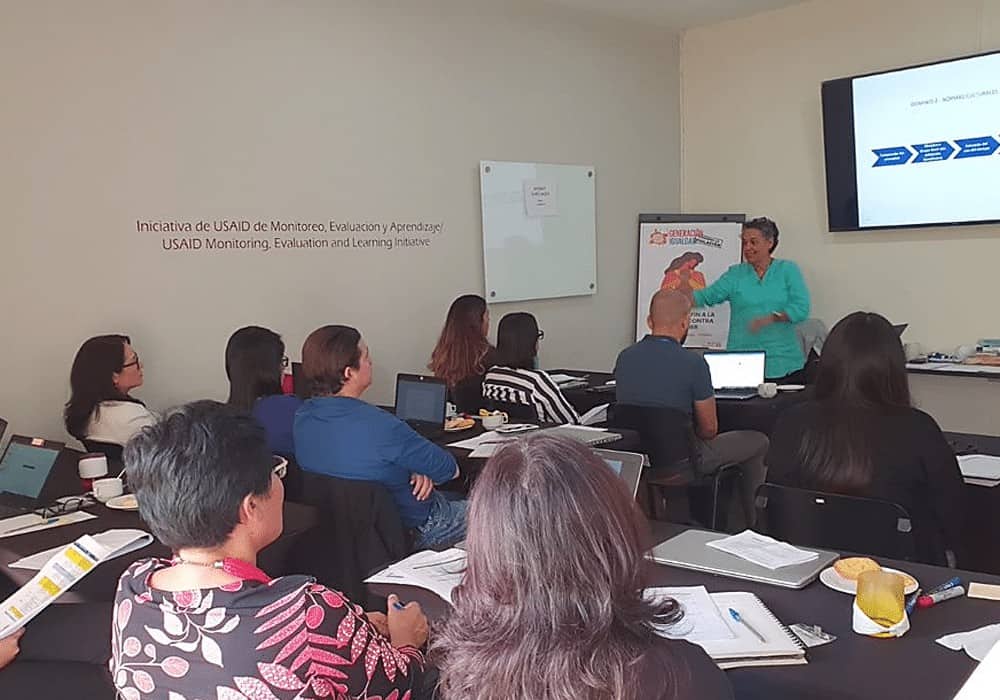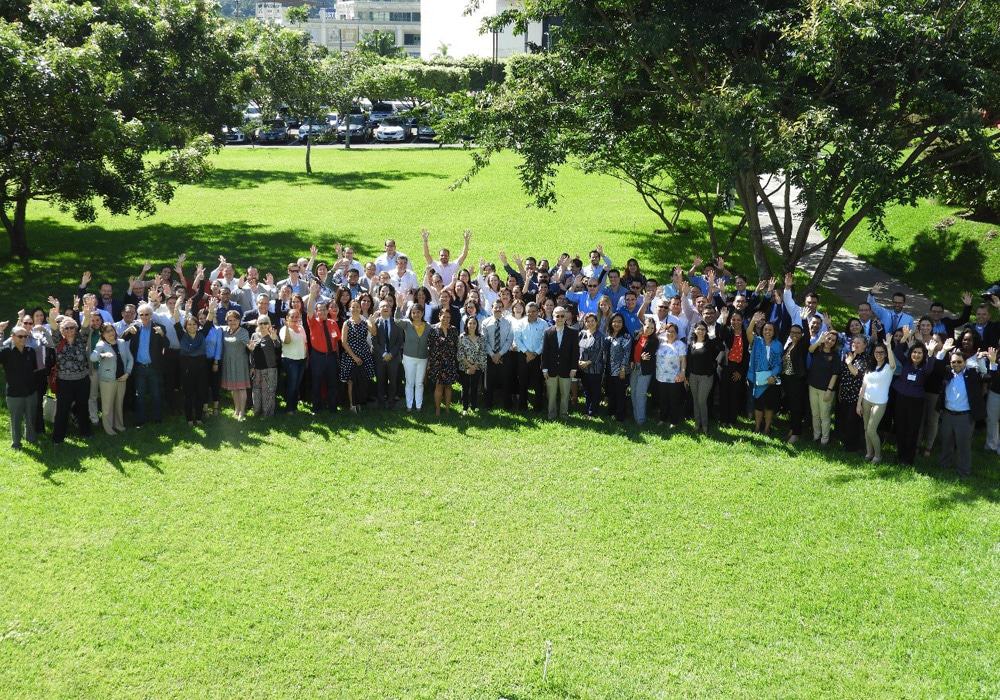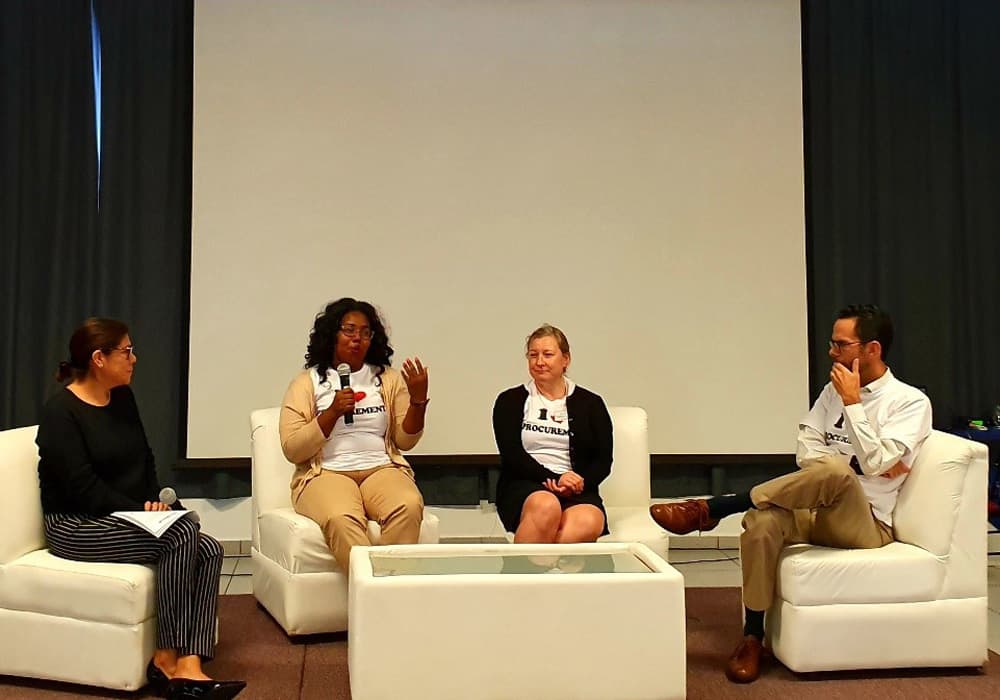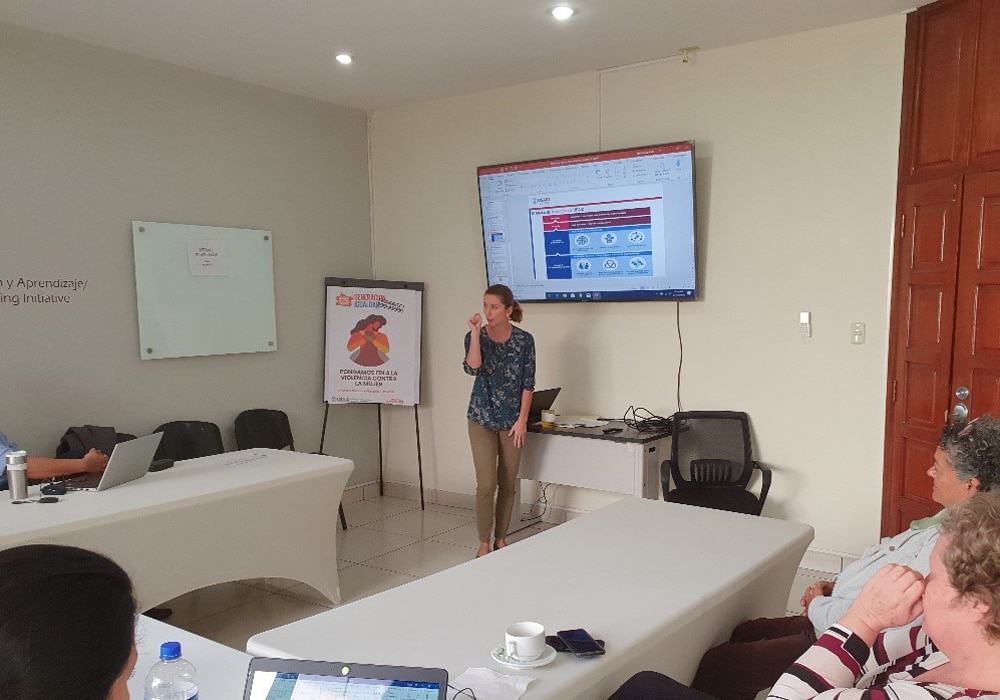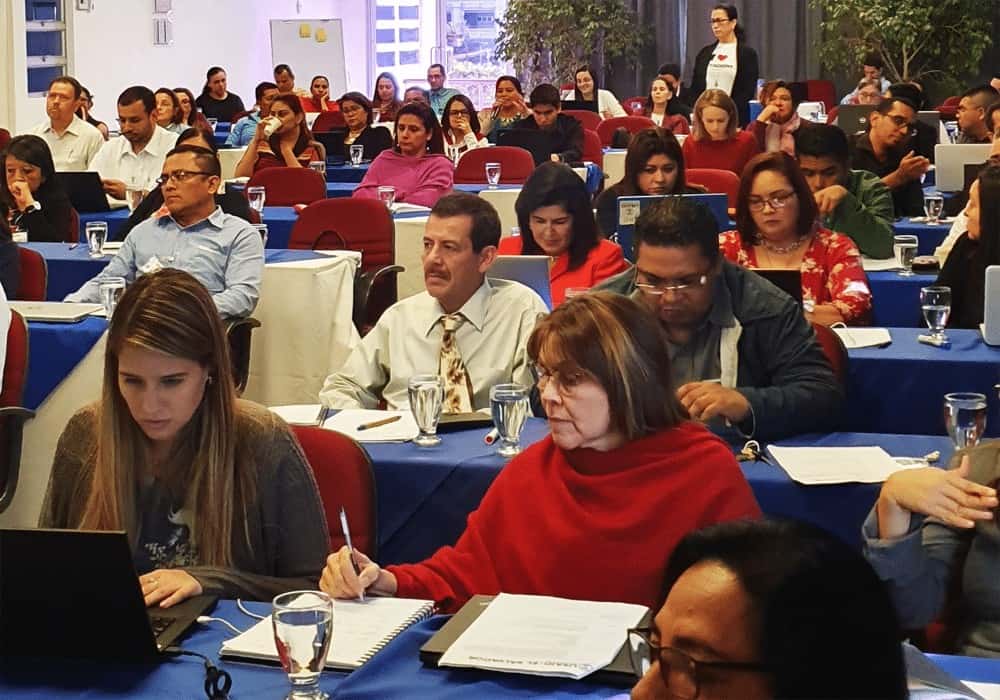
Using Knowledge Management and Learning on El Salvador’s Journey to Self-Reliance
Turning knowledge into action through a greater emphasis on learning, sharing, and adapting to use that knowledge continued to guide USAID/El Salvador Monitoring, Evaluation, and Learning Initiative (MELI) training sessions at the close of 2019.
Three MELI training sessions for USAID implementing partners (IPs) in El Salvador took place in November and December 2019 focusing on USAID policy and regulations in relation to this theme:
- “Journey to Self-Reliance”: How to manage “Self-Reliance” through road maps and commitment and capacity indicators was the focus of a Dec. 18, 2019, training. Participants from six IPs discussed knowledge management’s role in USAID’s reoriented way of doing business focusing on supporting partner countries on their “Journey to Self-Reliance.” A “Journey to Self-Reliance” is a country’s capacity to plan, finance, and implement solutions to local development challenges along with its commitment to see these through effectively, inclusively, and with accountability.
- Gender: 12 participants from 11 IPs gained knowledge Nov. 27, 2019, about updated regulations (USAID and the Government of El Salvador) relevant to gender equality and non-discrimination, inclusive development, and prevention of gender-based violence. Participants also learned about adapting to new priorities in the USAID/El Salvador Country Development Cooperation Strategy and their importance relevant to the gender equality and inclusion policies and norms.
- Financial Administration, Acquisitions, and Contracting Systems: More than 80 participants from 28 IPs attended a training session Nov. 5 to 7, 2019, on logistics for financial administration, acquisitions, and contracting systems. Topics addressed included fiscal regulations, audits, payments and costs, including knowledge sharing and lessons learned discussions among IPs.
USAID/El Salvador awarded ME&A the MELI task order in 2016 under the Policy, Planning and Learning-Learning, Evaluation and Research (PPL-LER) IDIQ Contract to provide evaluation, monitoring, and assessment services for USAID Missions and Offices worldwide.



